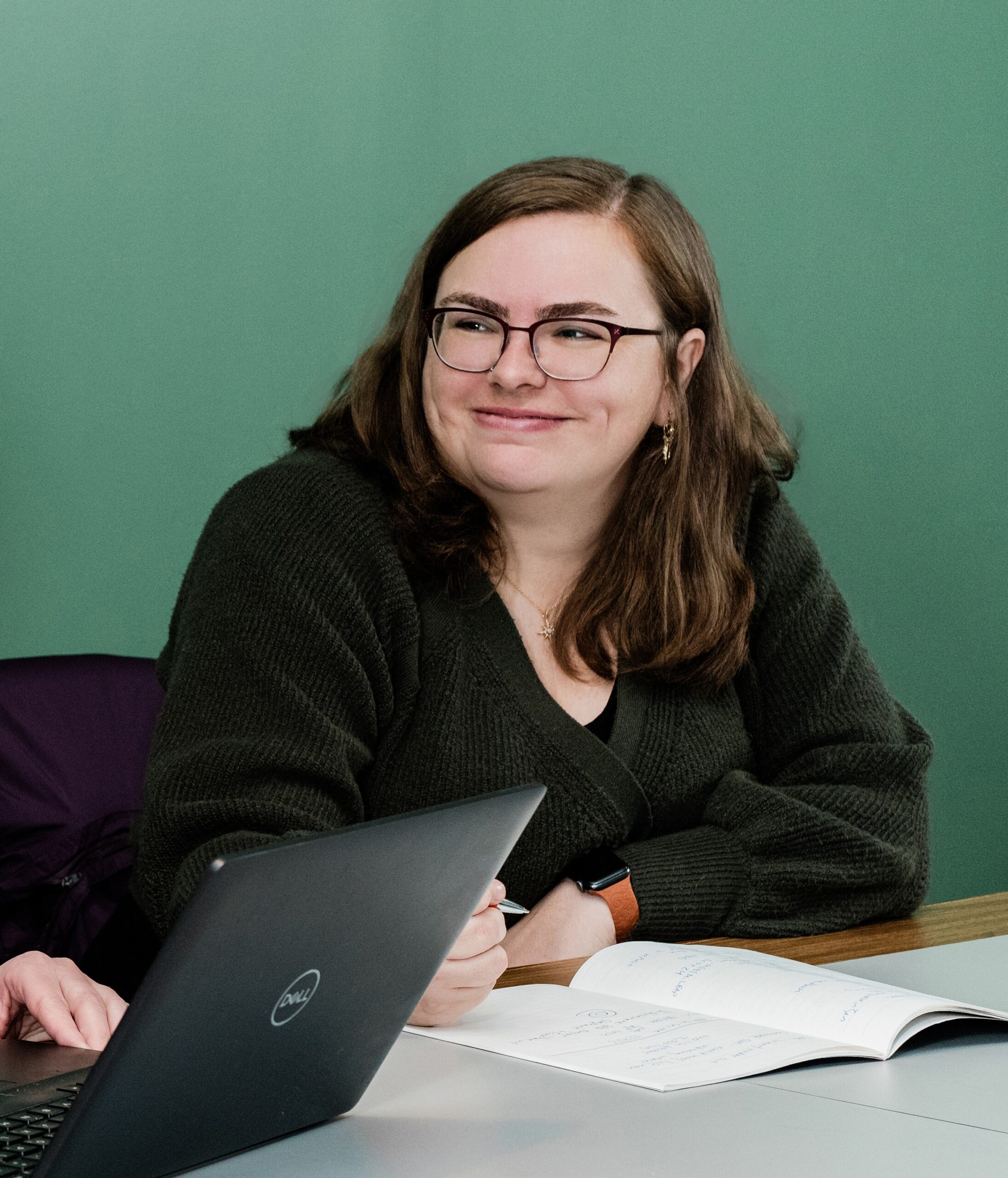Senior Research Associate Rebecca Frausel joined Public Policy Associates two years ago and quickly became a valued researcher in our largest policy areas, studying early childhood education and child care programs. Her work reflects a deep-held commitment to promoting educational access and equity. Dr. Frausel earned her undergraduate degree with double majors in English and psychology from the University of Colorado Boulder as well as master’s and Ph.D. degrees in comparative human development from the University of Chicago. She is active in the Cognitive Development Society and was recently elected as the representative from a non-academic institution to the Women in Quantitative Methods Board from the Society for Research on Educational Effectiveness.
Your training is in developmental psychology. Did you always envision a career in public policy research?
I’ve always been passionate about connecting research to real-world challenges, which ultimately led me to a career in public policy research. However, I took a somewhat unconventional path to get here, including studying at the University of Chicago, an institution renowned for its theoretical emphasis. My work with nonprofit organizations like Narrative 4, and my experiences at the Susan Hirt Hagen Center for Community Outreach, Research, and Evaluation (CORE) at Penn State Erie, The Behrend College cemented my commitment to bridging research and practice. I like policy research because it allows for opportunities to address systemic challenges and shape programs that can have broad impacts on the well-being of children and families.
What type of research do you do?
My research focuses on evaluating early care and education policies and programs, with an emphasis on understanding their impacts on families, children, and educators. Typically, this involves mixed methods; though, I specialize in quantitative methods, combining findings from primary data such as surveys with secondary or administrative data to capture a comprehensive picture of policy impacts. At PPA, I’ve also become interested in participatory research, such as community input/information sessions and listening-workshopping sessions, which allow me to collaborate directly with the people most affected by the policies at hand. This ensures the research not only informs policy but is itself informed by the voices and experiences of those most impacted by the work.
What are your key policy interests?
I am passionate about addressing the child care crisis in the United States through systemic reforms, such as extending existing PK-12 systems to include birth-to-five programs and compensating low-income parents for child care. An equally important policy interest is enhancing the overall well-being of the early care and education workforce, by improving their compensation, benefits, and working conditions. This workforce, composed predominately of women, is essential not only to the broader economy, but also to fostering children’s early academic success and supporting families’ financial and career stability. Child care issues disproportionately affect mothers, perpetuating gender inequality in the labor market, and by addressing these challenges, I hope to promote economic justice and gender equity.
What major projects have you worked on at PPA?
My research at PPA broadly falls into two categories: education workforce and child care policy. First, I study the experiences of the PK-12 and early care and education workforce, and collaborate with state agencies and non-government organizations to support workers’ professional development, ability to provide high-quality care and education, and overall well-being. Second, with funding from the Office of Planning, Research, and Evaluation (OPRE), I partner with the Michigan Department of Lifelong Education, Achievement, and Potential (MiLEAP) on a study of the State’s Quality Recognition and Improvement System (QRIS), as well as two studies on the State’s Child Care and Development Fund (CCDF) subsidy program.
How does it work out living in Colorado and working for a virtual research company with researchers living in other parts of the country?
It works surprisingly well! The virtual set-up allows for tremendous flexibility for us to work where we want and when we’re the most productive. While much of our research is conducted on Michigan’s programs, the presence of researchers across the country has allowed us to be competitive for project work in places like Colorado, where employees have lived experience and contextual knowledge that enhances the quality of our work. My only complaint is 9 A.M. meetings in Michigan mean 7 A.M. meetings in Colorado!
What do you like to do outside of work?
I enjoy spending time with my husband doing things like hiking, playing board games, and attending live music. We absolutely adore our pets (3 cats, 1 dog) and have served as foster parents for local animal shelters, allowing us to give back to the community. I am an avid reader (with the goal to read 52 books each year) as well as a podcast addict. My TV guilty pleasure is baking and cooking competition shows, which inspire me to get creative in the kitchen.

